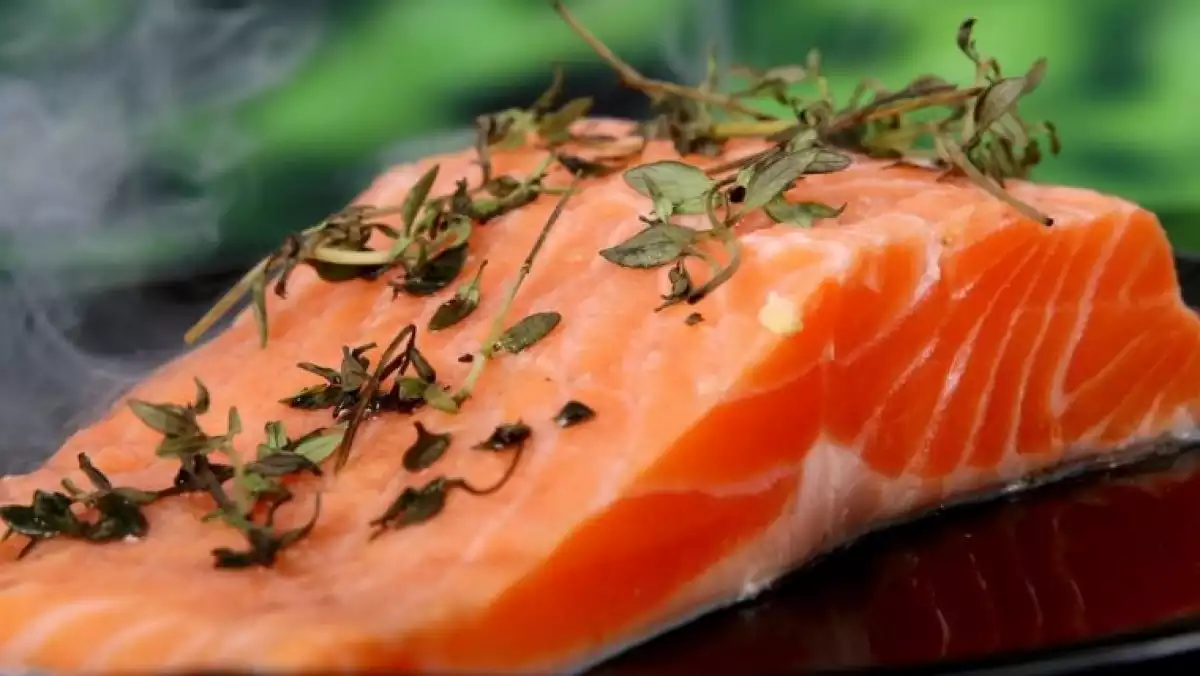
Collagen is a vital protein that the body needs to function correctly. Collagen deficiency is related to many health conditions, some of which are serious.
So, if you want to avoid these health issues, you should discover foods rich in collagen and work on incorporating them in your diet on a regular basis. In this article, we explain how to obtain this vital protein through 8 foods with collagen.
What is collagen?
Collagen is one of the most critical vital proteins in the human body. This substance is in charge of creating and strengthening bones, muscles, tendons, skin and all of the parts that the body is made up of. In fact, this molecule explicitly, is what makes up the majority of our skin and bones.
Over time the body's collagen reserves tend to dwindle progressively, something that can be detrimental to proper bone and muscle function and also the skin's state and elasticity.
In fact, the benefits of collagen for overall health and the skin means that the consumption of this protein is now closely linked to turning back the clock when it comes to the skin for a more youthful appearance.
This is why there are so many types of collagen cream for the skin on the market as well as dietary supplements, and ointments made with this protein. Hydrolyzed collagen is one of the most popular supplements, made from the cartilage and bones of bovine animals.
However, you don't necessarily need to take pills and supplements to get enough of this protein -you can get what you need from collagen-rich foods (except for in cases of severe deficiency).

8 Collagen rich foods
Even though collagen is a protein mostly produced by animals, which makes meat the primary source of this element, vegan collagen sources like certain fruits and vegetables also stimulate the production of this protein.
It's worth noting that certain foods don't provide us with collagen directly, but rather help the body to produce this protein on its own.
So, getting to know foods that are rich in essential nutrients is a necessary part of a balanced and nutritious diet. Below we highlight 8 collagen rich foods that will help us to get this nutrient much more easily.
1. Gelatin
Gelatin is the perfect food if you're looking to incorporate more collagen in your diet since it is literally made from collagen and specifically connective tissue from animals. This tissue is derived from animal bones, skin, and tendons.
Gelatin contains large quantities of proteins as well as mineral salts, which makes it very healthy. If you want to add more collagen to your diet, gelatin is probably just what you need, especially if you eat it on a regular basis.

2. Fish collagen
Generally speaking, fish is one of the healthiest foods out there. Also, in addition to other nutrients, fish is high in collagen. The fish that contains the highest levels of this protein molecule are cod, salmon, and tuna.
The scales and fish bones of these marine animals contain the most collagen. Fish high in omega-3 fatty acids also contribute to collagen levels in the body, favoring smooth, young looking skin.
3. Offal
Offal probably isn't a type of food that you think about eating on a daily basis, however, after gelatin, it is one of the foods with the most collagen.
If you want to eat as much of this protein as possible, consider adding, liverwurst, tripe, pig's feet or any other kind of offal to your diet.
4. Bone broth collagen
Similar to gelatin, bone broth is an excellent source of this vital protein. When you cook animal bones and tendons in broth, along with vegetables or any other type of ingredient, collagen separates from the bone and works its way into the broth.
All types of broth, and particularly bone broth are great for all kinds of health problems. Besides other benefits, this food also provides the body with plenty of collagen.
5. Egg whites
Although eggs, in general, are one of the highest protein foods, egg whites are the part that contains the most elements related to collagen production.
The amino acids, glycine, and proline are present in high concentration in the whites, which favors collagen production in the body. Besides, this is a significant source of natural fats.
6. Fruits and vegetables rich in vitamin C
Vitamin C is an essential nutrient when it comes to collagen absorption, which is why consuming foods rich in this substance favors the creation of this protein. What fruits or vegetables contain vitamin C? Of course, citrus fruits are on this list.
Some examples are lemons, oranges, grapefruit, tangerines, berries, kiwi, pineapple, mango, etc.

7. Foods with sulfur
The mineral known as sulfur is also essential to the body, and a deficiency of this nutrient can cause serious health issues. Also, sulfur is needed to synthesize a variety of proteins.
Here are the main foods that contain sulfur: garlic, onion, broccoli, cabbage, celery, black olives, cucumber, and brussel sprouts. Eating these vegetables will help your body to absorb collagen as it should.
Also, there are certain animal products like eggs, beef, and poultry, which all contain both sulfur and collagen.
8. Soy
Soy is one of the best foods if you want to get more collagen, and that's why it contributes to healthy skin. Eating soy frequently helps to keep your skin smooth and young-looking thanks to the plant-based hormones that it contains that help to make this vital protein.
References
Buehler, M. J. (2006). Nature designs tough collagen: Explaining the nanostructure of collagen fibrils. PNAS. 103 (33): 12285–12290
Di Lullo, G. A.; Sweeney, S. M.; Körkkö, J.; Ala-Kokko, Leena & San Antonio, James D. (2002). Mapping the Ligand-binding Sites and Disease-associated Mutations on the Most Abundant Protein in the Human, Type I Collagen. J. Biol. Chem. 277 (6): 4223–4231
